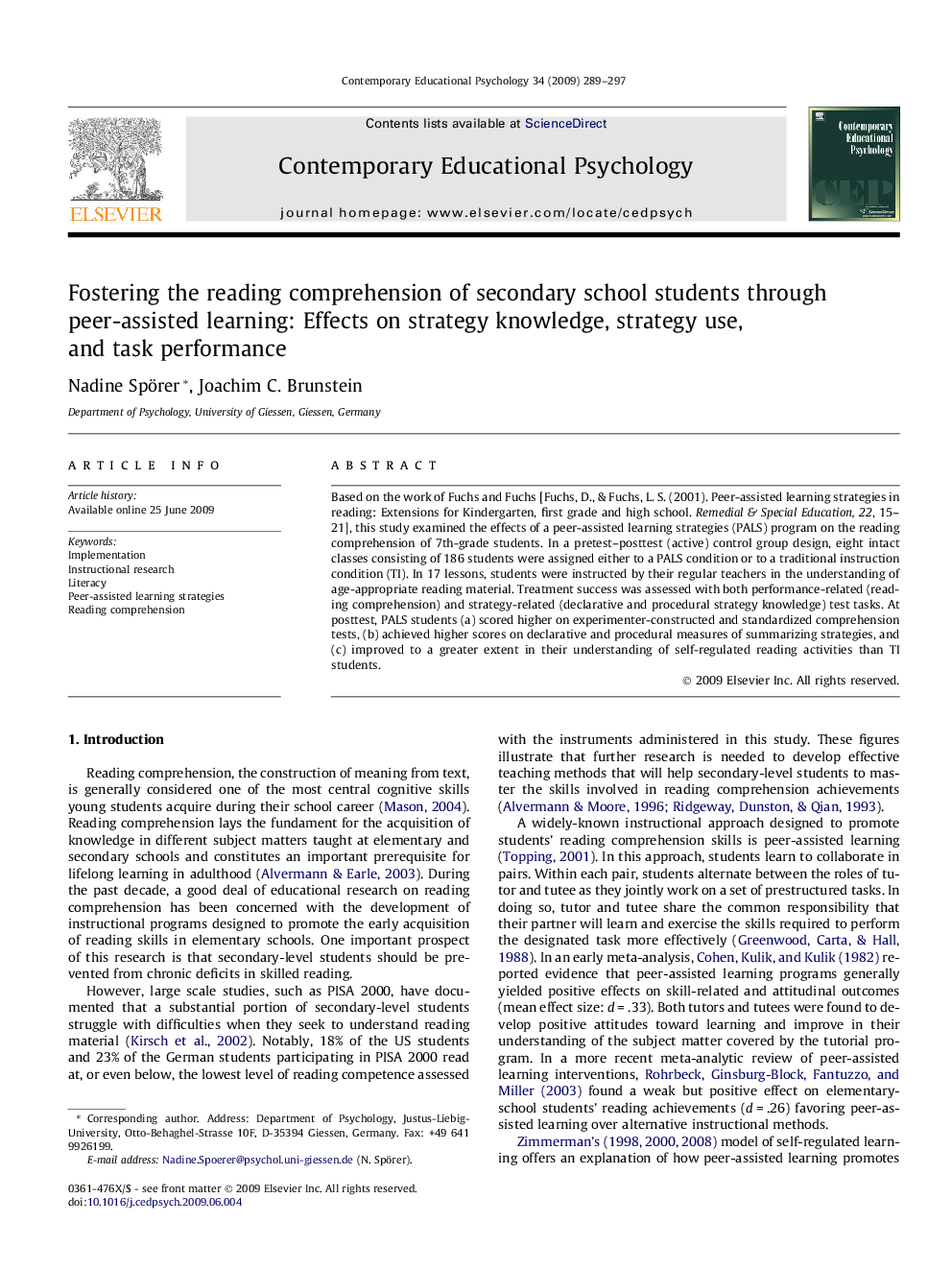| Article ID | Journal | Published Year | Pages | File Type |
|---|---|---|---|---|
| 352786 | Contemporary Educational Psychology | 2009 | 9 Pages |
Based on the work of Fuchs and Fuchs [Fuchs, D., & Fuchs, L. S. (2001). Peer-assisted learning strategies in reading: Extensions for Kindergarten, first grade and high school. Remedial & Special Education, 22, 15–21], this study examined the effects of a peer-assisted learning strategies (PALS) program on the reading comprehension of 7th-grade students. In a pretest–posttest (active) control group design, eight intact classes consisting of 186 students were assigned either to a PALS condition or to a traditional instruction condition (TI). In 17 lessons, students were instructed by their regular teachers in the understanding of age-appropriate reading material. Treatment success was assessed with both performance-related (reading comprehension) and strategy-related (declarative and procedural strategy knowledge) test tasks. At posttest, PALS students (a) scored higher on experimenter-constructed and standardized comprehension tests, (b) achieved higher scores on declarative and procedural measures of summarizing strategies, and (c) improved to a greater extent in their understanding of self-regulated reading activities than TI students.
